One of the most powerful lessons I’ve learned in sales—and life—is that self-accountability is the key to real progress. Goals are great, but they don’t mean much if we don’t actively work toward them. And for me, one of the most effective tools for building self-accountability has been calendar management. By learning to make my calendar work for me, I’ve found a way to stay on track, be intentional, and actually see my plans turn into results.
Why Calendar Management Equals Self-Accountability
Think of your calendar as a commitment tool. When you schedule time for specific activities, you’re essentially holding yourself accountable to show up, just as if it were a meeting with a client or boss. The calendar isn’t just about managing time—it’s about honoring your goals and respecting the commitments you make to yourself.
Early on, I didn’t use my calendar with the kind of discipline I do now. I’d jot down a few reminders here and there, but I wasn’t giving my goals the time and space they needed. Now, I treat my calendar like a roadmap. Every meeting, task, and high-value activity has a place, and that structure keeps me honest.
Breaking Down the Day: Prioritizing High-Value Activities
If there’s one thing I’ve learned, it’s that not all activities are equal. High-value activities are the tasks that directly contribute to my goals. They’re the ones that fill my pipeline, build relationships, and ultimately drive results. The trick is to make sure these are front and center in my calendar, not just squeezed in as an afterthought.
For example, every Monday, I block out time for prospecting calls and follow-ups. These are non-negotiable. Blocking time for high-value activities at the start of the week keeps me proactive, so I’m not just reacting to whatever pops up. It’s my way of telling myself: this is what matters, and I’m committed to it.
Keeping Your Calendar Realistic
One of the most common mistakes I see (and have made myself) is being overly ambitious with scheduling. It’s easy to fill your calendar with back-to-back meetings and high expectations. But when you don’t stick to that schedule, it’s discouraging. Self-accountability is all about setting yourself up for success, not burnout.
I’ve found that blocking 60-70% of my day works best, leaving room for the unexpected while still getting the essentials done. If I over-schedule, I end up overwhelmed and unable to complete what I set out to do, which doesn’t feel productive or rewarding. Building in some breathing room is key; it lets me adapt and still follow through on what’s most important.
Checking In with Yourself Weekly
I realized early on that accountability only works if you’re willing to check in with yourself regularly. Every Friday, I set aside a 30-minute “reflection” time to go through my calendar and ask: Did I honor my commitments this week? If I didn’t, why not? What can I do better next week?
This habit has helped me catch patterns that were getting in my way. Sometimes I’d push off calls or let “busy work” take priority. By checking in weekly, I hold myself accountable in real-time and make quick adjustments, so I don’t fall into the same traps week after week.
Using Your Calendar as a Personal Growth Tool
Calendar management isn’t just about being productive; it’s about personal growth. By organizing my time around what truly matters to me, I’ve seen a shift in my mindset. I used to get frustrated when goals didn’t materialize, but now I see that by managing my calendar, I’m actively taking control of my progress.
One technique that’s helped me grow personally is setting aside a bit of time each week for learning and development. For instance, every Tuesday morning, I block out 30 minutes to read a new article, watch a video, or listen to a podcast relevant to my industry. It’s not directly sales-focused, but it helps me keep learning, which in turn builds my confidence and skills over time.
Guarding Your Calendar to Guard Your Goals
Once you’ve scheduled time for the activities that matter, the next step is protecting that time. This is where self-accountability meets discipline. It’s easy to let other people or “urgent” tasks take over your calendar, but I’ve learned to be fiercely protective of my blocked time. If I have prospecting scheduled from 9 to 10 a.m., I treat it as sacred. No emails, no distractions.
A helpful trick I use is to set my calendar status to “busy” and let my team know that I’m unavailable during those blocks. That simple action keeps me focused and minimizes interruptions. Treating my calendar like this keeps me accountable not only to myself but also to the people I’m working with, because they know I respect my own commitments.
Build Your Success, One Calendar Block at a Time
Self-accountability through calendar management isn’t just about being efficient; it’s about creating a system that supports your goals and pushes you forward. When you’re clear about what you want to achieve and make the commitment to schedule and protect your time, you’re investing in your own success.
Building this habit doesn’t happen overnight, but once you see the impact of honoring your calendar, you’ll realize just how powerful a tool it can be. Take it from me—making your calendar your accountability partner is one of the best investments you can make in your sales journey and personal growth.
